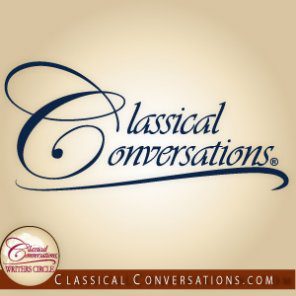And it came to pass, as her soul was in departing, (for she died) that she called his name Benoni: but his father called him Benjamin. — Genesis 35:18 (KJV)
This seemingly inconsequential detail reveals to us the importance of names. With her dying breath, Rachel wanted to name her newborn “son of my sorrow.” Jacob knew that a terrible legacy would accompany such a name, so he renamed his son Benjamin—“son of my right hand.” What a difference!
Most parents spend hours pondering the names for their children. We acknowledge that there is much meaning to these names. In order to understand the mission of our communities, let us consider the meaning of the name Classical Conversations.
Let us first look at the word “classical.” We mean two things by this word. First, we mean that we are attempting to recover an understanding of classical education and to apply that model in our communities and in our homes. We are turning our heads toward the ancient wisdom of the trivium (literally translated from the Latin as “three roads” or “three ways”). We follow this model in service of our mission “to know God and to make Him known.”
How can we know God? Our contemporary society says that there is no truth; in other words, there is no knowing anything with certainty. As Christians, we believe the opposite: we believe that we can know God. We believe that He has revealed himself to us in two ways—His Word and His world. How can we help our children to find Him in these two places by following the classical model?
When our children are very small, we know that they are generally good at memorizing information. We choose to work with the grain instead of against the grain as we teach them to memorize Scripture—important knowledge about God’s Word—and academic subjects such as history, math, Latin, English grammar, science, and geography—knowledge about God’s world. As our children grow into adolescence and adulthood, they learn more through conversation than through recitation. By following the classical model, we hope to work with their natural inclinations instead of against them.
The word classical also implies that we are recovering not just the model of classical education, but also the content of classical education. There are certain books that all educated people should read so that they can enter the conversations that have been going on since the beginning of time. There are certain questions that have always been asked:
- Who is man?
- Who is God?
- What is man’s responsibility to other men?
- What is man’s responsibility to God?
- How can we find truth?
- How can we communicate truth to others?
As students (and parents) contemplate these questions, they can seek the wisdom of others. The best authors and thinkers have a lot to teach us about these questions.
The beauty of educating through these classical conversations is the simplicity. Contrary to conventional wisdom, we really only need four things to educate our children well:
- Books
- Pencil
- Paper
- Time
Contrary to the conventional wisdom of modern education, we do not need flashy presentations to convey truth to our students. All we need are some good books that are well-written and thought-provoking. Students need to spend time at home processing their ideas through pencil and paper. In class, tutors give them the time to develop ideas further through conversations with their tutor and their peers. We need to cultivate the lost art of conversation so that we can seek truth together.
In our communities, we strive to focus on good conversations throughout the day. We meet in churches (and occasionally homes) once a week to have stimulating conversations about the books we have read the week before. What you will not see in our seminars are PowerPoint presentations or Smart Boards. Instead, we want to focus on relationships as tutors guide students to ask and sometimes answer important questions.
You also will not see principals, teachers, or grades. We believe that parents hold ultimate responsibility for the education of their children. Tutors are there to model classical, Christian education for families and to support parents on this journey. Instead of bouncing from teacher to teacher all day as in a modern school paradigm, our students stay together in small groups for an entire day each week. Tutors thus communicate their love for students and their own zeal for learning. Students know that learning can be a lifelong pursuit not confined to a few years in a few classrooms. They see themselves as part of an ongoing conversation.
What you will see are engaged tutors and students on a treasure hunt to find exciting truths that God has hidden about himself in math, history, literature, science, and, yes, even Latin. What you will see are parents encouraging one another to set high standards for their students’ academic achievements because they believe that all of these subjects are God-ordained. What you will see are parents supporting other parents—praying for one another and sharing great ideas. What you will see are parents who are not just giving their children an education but also giving themselves an education as they learn alongside their children. Like their children, parents are joining the classical conversations.
As students learn the art of asking good questions and engaging in spirited dialogue with one another, their conversations naturally spill over into their homes. Thus, these timeless conversations become timely as students apply their reading to address the questions they have today. And so, the classical conversations spill over into the next generation.




